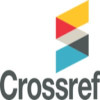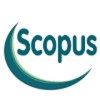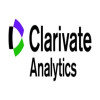Research Article
Aim & Scope
Research in Educational Administration and Leadership (REAL) is a non-commercial, open-access, peer-reviewed international journal that aims to provide a platform for researchers to publish up-to-date research articles on educational administration and leadership at all levels of education – from pre-primary to higher education. The journal of REAL accepts submissions using any research methodology, including case studies, reviews, mixed-methods studies, quantitative and qualitative research, and innovative research methodologies. Only a limited number of original and, thus, pioneering scale development studies are intended for publication provided that that they are primarily concerned with new issues in the field of educational administration and leadership.
The scope of the journal involves education policy, educational administration and leadership theories, and methodology-informed research in educational administration, management, and leadership that may have a direct or indirect effect on educational stakeholders and decision-makers. Submissions that are not explicitly linked to educational administration and leadership scholarship will not be considered for publication.
Prospective authors should note that only original and previously unpublished manuscripts will be considered for publication. REAL publishes scale development studies only on a rare basis, and only if they are innovative, need-driven, and address new and emerging issues in the field of educational leadership. Additionally, please be aware that our journal has recently made an editorial decision to gradually reduce the acceptance and publication of core Higher Education papers, effective from 2024. This shift in our editorial focus is part of a broader strategy to better align with our core areas of interest that lies in the K-12 level.
The research articles may draw from primary or secondary data sources, such as surveys, observations, knowledge and practice of education policymakers, practitioners, and researchers in order to form a global topic of discussion for all those engaged in the field of educational administration and leadership. Researchers from all types of educational institutions, including K–12 schools, colleges and universities, adult education centers, non–governmental educational groups are encouraged to submit their papers addressing timely topics and critical issues in the field.
Author Guidelines
The REAL embraces various research methods, including quantitative, qualitative, mixed-method studies, case studies, reviews, or new research practices. Editorial team also welcomes conceptual papers seeking to address a wide spectrum of issues in the practice and theory of educational administration and leadership.
Manuscripts must adhere to the latest edition of the APA Publication Manual (American Psychological Association), including guidelines for organization and structure, formatting of references, tables, figures, and all other APA formatting requirements. Submissions should be between 4,000 and 8,000 words in length. The main document file, including the abstract, keywords, main text, and references, should be anonymized. Manuscripts containing author information in their file name or text will be returned to the authors.
Prospective authors should note that only original and previously unpublished manuscripts will be considered for publication. All submissions will be checked in Turnitin software for originality to ensure that the manuscripts do not exceed 19% similarity rate. The submissions are to be done in two separate files, including the contents given below:
1. Cover Page: The cover page is to include the title of the paper, author name(s), institutional affiliation(s), contact information, and short bios, together with the authors'(if there are two or more authors) CRediT taxonomy at the end. Submissions that are not organized according to the journal format will be returned to the corresponding author immediately.2. Main Document: Anonymized manuscript for the blind review process. No author(s) or institution information should be provided with this version.
In addition to these documents, a cover letter explaining the relevance of the submitted paper to our journal and its potential contribution to the field of educational administration and leadership field is optional but highly appreciated. All required materials, including the cover page and the manuscript, must be uploaded in their final form to the online journal administration system.: https://dergipark.org.tr/en/journal/329/submission/step/manuscript/new
Style and Format
Manuscripts should be submitted in Word format. Please ensure the word document of your manuscript is anonymous for peer review before you upload it. Style and format for submissions are presented below:- All manuscripts should be typed in Times New Roman font, 12-point size, and double-spaced throughout the paper.- The overall structure of the manuscript should conform to the APA Style Guide (7th edition), including formatting of references, tables and figures, as well as all other APA formatting concerns.- Manuscripts should also be written with these subtitles in the following order: Title, Abstract, Keywords, The Main Text, References, Appendices (if any), Table(s), and Figure(s).- Please see an example of the manuscript structure at https://owl.purdue.edu/owl/research_and_citation/apa_style/apa_formatting_and_style_guide/apa_sample_paper.html
Abstract
Please ensure that your abstract does not include any references. It should briefly and clearly outline the main objective(s), results, and conclusions of your research, with a maximum length of 250 words. Additionally, avoid including statistical values and detailed explanations in the abstract.
Headings and Subheadings
For the subheadings, the author(s) are allowed to organize them in a way that best suits the present research. However, the following first-level headings are required in the paper: introduction, method, results, discussion.
Manuscript Length
A regular article should run between 4000-8000 words, including the main text, references, tables and figures. On occasion, longer manuscripts can be considered where appropriate, depending upon the editorial decision.
Language
Articles written in English are welcomed from all countries. Spelling may follow either British or American conventions but must be consistent throughout. Please ensure that overall use of English, punctuation, sentence structure, and spelling errors in the text were reviewed and corrected prior to submission.
Double-Blind Peer Review
After initial editorial review, all manuscripts are sent to at least two members of the Editorial Review Board and/or invited reviewers with special competence in the area covered. Based on reviewer comments, the Editor is responsible for the final decision regarding acceptance/revision/rejection of articles.Author CreditsThe REAL uses the CRediT Taxonomy to define author contributions. All submissions must include a cover page with an author contribution list, as exemplified below. The corresponding author is expected to present CRediT details that provide the opportunity to share an accurate and detailed description of the authors' contributions to the submitted manuscript. For articles that are based primarily on a dissertation or thesis, it is strongly recommended that the student is listed as the first/principal author.
The role(s) of all authors should be listed, using the relevant categories.
Authors may have contributed in multiple roles. This information must be provided after the authors' short bios in the cover page. The roles of authors may be classified as the followings, but not limited to:
Conceptualization (Ideas; formulation or evolution of overarching research goals and aims).Methodology (Development or design of methodology; creation of models).Software (Programming, software development; designing computer programs; implementation of the computer code, etc.).Formal analysis (Application of statistical, mathematical, computational, or other formal techniques to analyze or synthesize study data).Investigation (Conducting a research and investigation process, specifically performing the experiments, or data/evidence collection).Resources (Provision of study materials, reagents, materials, participants, samples, instrumentation, computing resources, or other analysis tools).Writing – original draft preparation (Creation and/or presentation of the published work, specifically writing the initial draft (including substantive translation).Writing – review and editing (Preparation, creation, and/or presentation of the published work by those from the original research group, specifically critical review, commentary, or revision – including pre-or post-publication stages)Supervision (Oversight and leadership responsibility for the research activity planning and execution, including mentorship external to the core team).Project administration (Management and coordination responsibility for the research activity planning and execution).Funding acquisition (Acquisition of the financial support for the project leading to this publication).
The corresponding author may use the following example to state author contributions as authorship credits:
Tanya Bush (Conceptualization/Administration - formulated research goals and aims, and administered the research)William Star and Selim Metin (Methodology - designed the methodology)Helen Woody and Alice Silen (Writing, review, and editing - prepared and/or presented the published work)Source: https://onlinelibrary.wiley.com/doi/full/10.1002/leap.1210
Ethical Principles and Publication Policy
The ethics statement of the REAL is based on the Code of Conduct guidelines of the Committee on Publication Ethics (COPE), available at www.publicationethics.orgThis journal follows the COPE Code of Conduct and Best Practice Guidelines for Journal Editors and the Code of Conduct for Journal Publishers.Duties of EditorsFair play and editorial independenceEditors evaluate submitted manuscripts exclusively on the basis of their academic merit (importance, originality, study’s validity, clarity) and its relevance to the journal’s scope, without regard to the authors’ race, gender, sexual orientation, ethnic origin, citizenship, religious belief, political philosophy or institutional affiliation. Decisions to edit and publish are not determined by the policies of governments or any other agencies outside of the journal itself. The Editor-in-Chief has full authority over the entire editorial content of the journal and the timing of publication of that content.ConfidentialityEditors and editorial staff will not disclose any information about a submitted manuscript to anyone other than the corresponding author, reviewers, potential reviewers, other editorial advisers, and the publisher, as appropriate.
Disclosure and conflicts of interest
Fundamental errors in published works
Price Policy
Research in Educational Administration & Leadership (REAL) operates as a non-commercial, open-access journal and, therefore, does not implement any pricing policy.
Indexes
Citation Indexes
Other Indexes
Journal Boards
FOUNDING EDITOR (R.I.P)
Editor-in-Chief(s)
Associate Editors
Editoral Assistants
Section Editors
Advisory Panel
Editorial Board




















